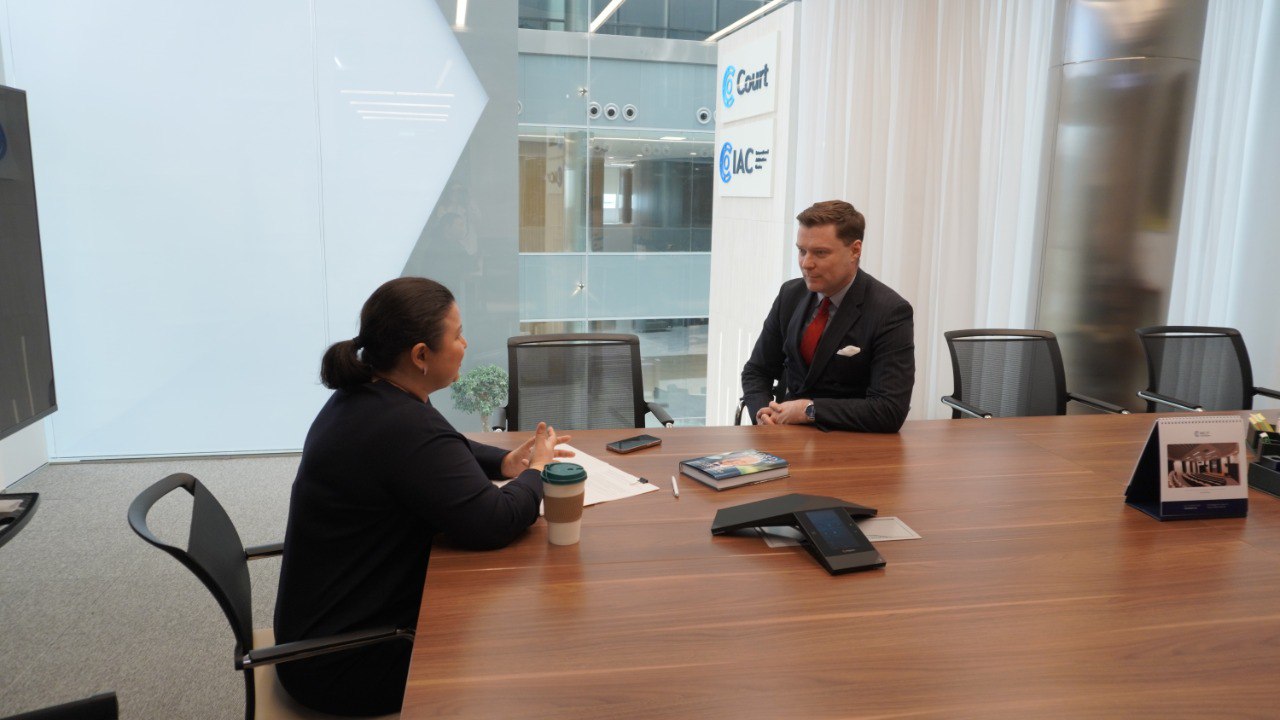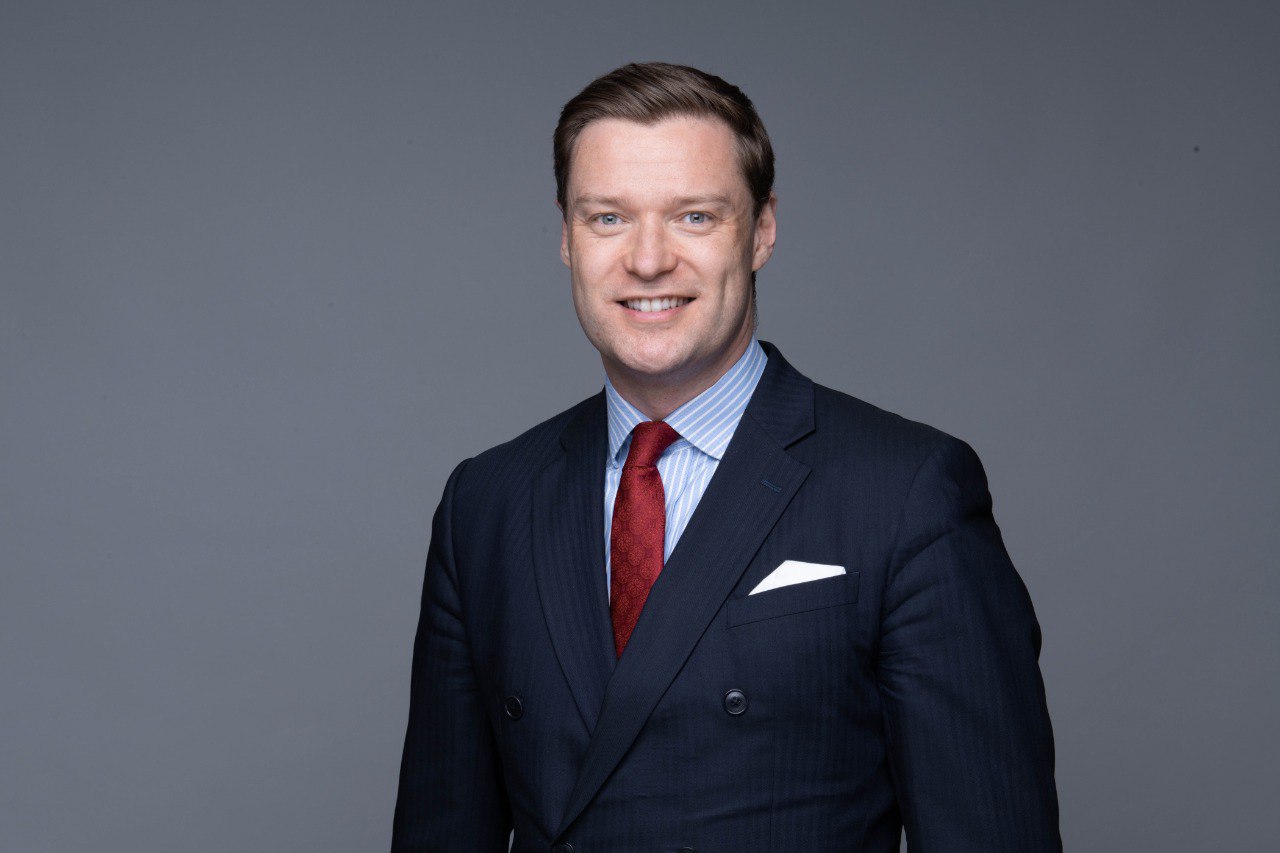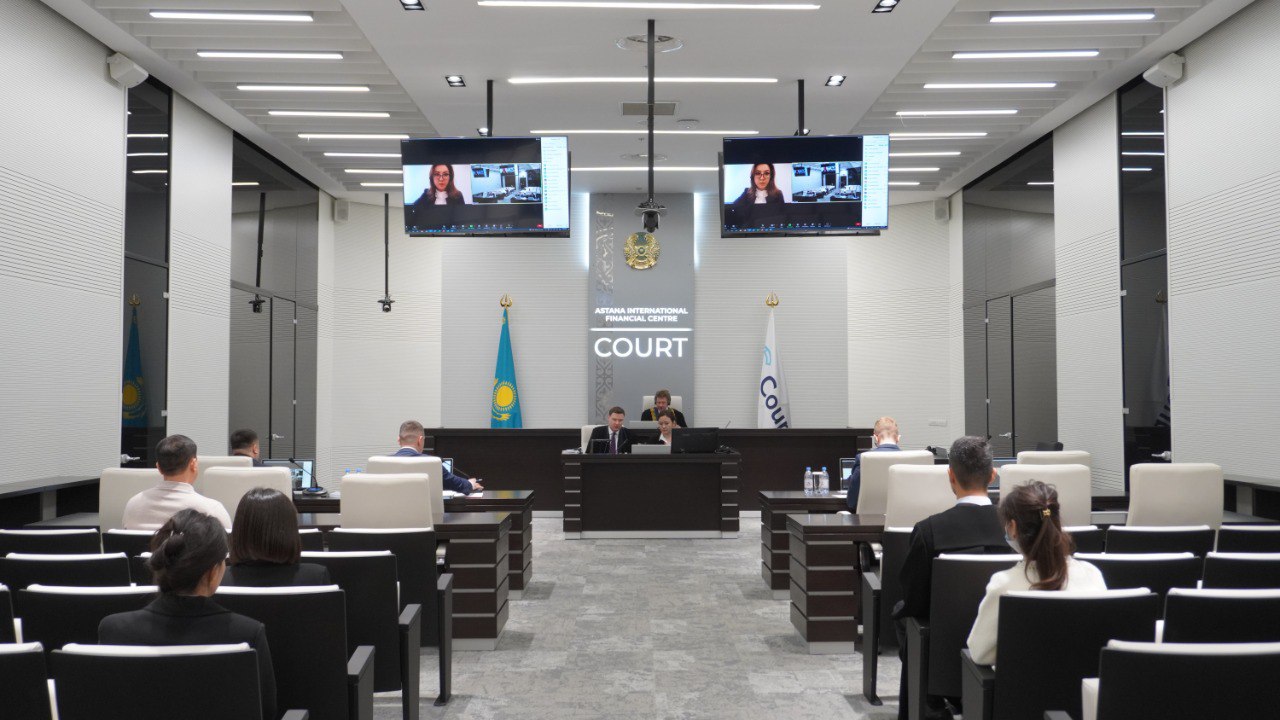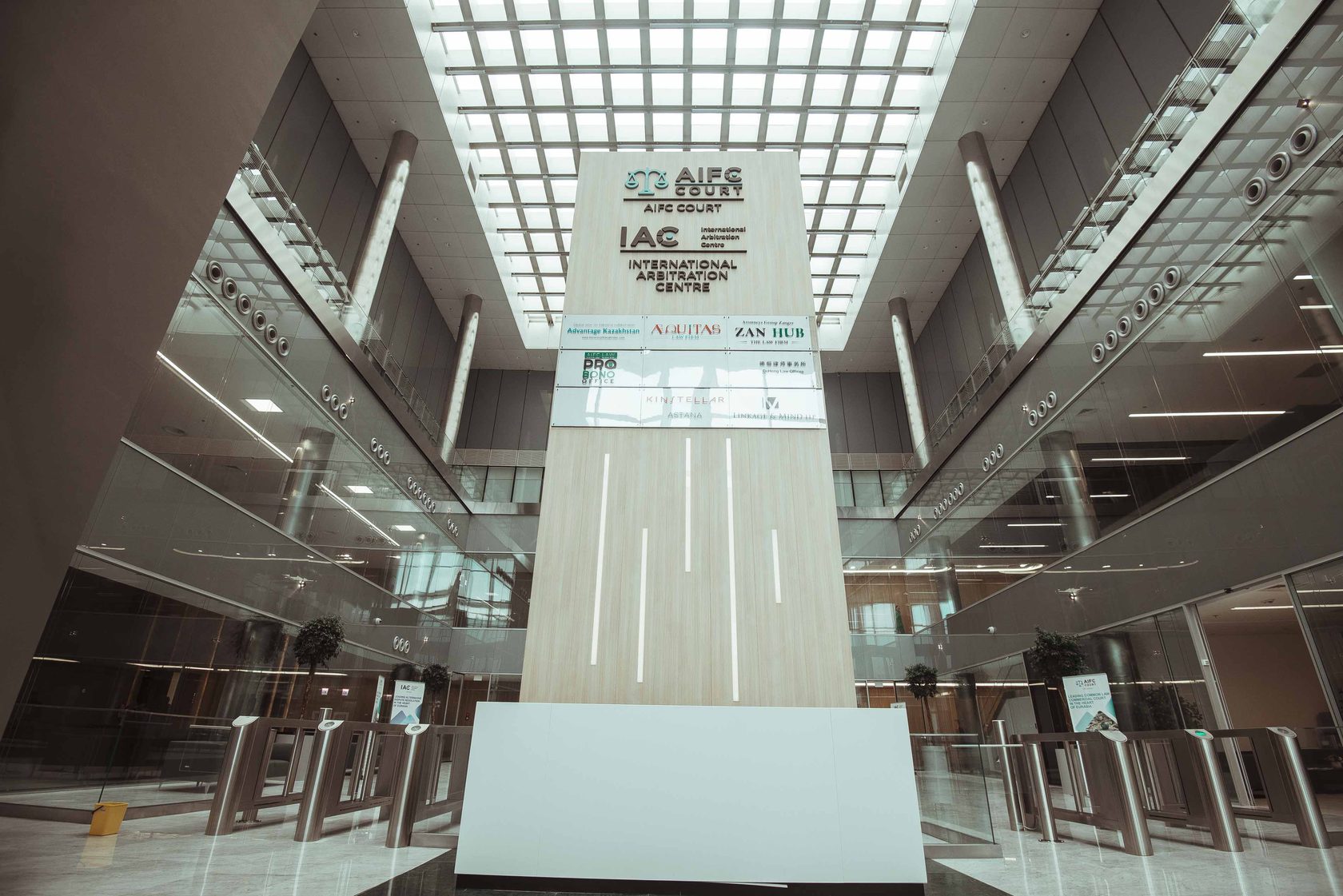ASTANA — At its dawn in 2018, the Astana International Financial Centre (AIFC) Court and International Arbitration Centre (IAC) aspired to become an exemplary one-stop shop for commercial dispute resolution in the AIFC and the Eurasia region. After five years, both concluded and enforced more than 2,201 cases, including 68 AIFC Court Judgments, 425 arbitration awards, and 1,708 mediation settlements, said Christopher Campbell-Holt, Registrar and Chief Executive at the AIFC Court and IAC, in an interview with The Astana Times.

After five years, both concluded and enforced more than 2,201 cases, including 68 AIFC Court Judgments, 425 arbitration awards, and 1,708 mediation settlements. Photo credit: AIFC Court and IAC.
He said these are unprecedented results for such young institutions, demonstrating to investors that, while the Court and IAC have not been here for 100 years, as similar institutions elsewhere, they can be trusted because procedures have been tried and tested.
“The Court and IAC have considered different areas of the law relevant to commercial investments. We have tried and tested our special enforcement system to ensure that if and when people have received a judgment in their favor, they actually get it paid 100%,” he said.
In early 2017, he and Lord Woolf, the former Lord Chief Justice of England and Wales, were invited to establish in Astana a world-class independent and impartial commercial law court and an international arbitration center applying the highest standards of the rule of law, which is critical for investors coming to any financial center.
“Investors, first and foremost, want to know what is it that is there to invest in. But at the same time, a serious investor will always ask: how am I protected if anything goes wrong with the investment? The reality for any investor in any country is that there will, from time to time, be matters in dispute. So, if and when that happens, how are those investors protected equally and fairly by applying the highest standards of the rule of law? That is what Lord Woolf and I created at the AIFC in Kazakhstan, a truly independent Court and IAC with foreign judges, arbitrators and mediators,” he said.

Christopher Campbell-Holt, Registrar and Chief Executive at the AIFC Court and IAC. Photo credit: AIFC Court and IAC.
According to Campbell-Holt, the foreign origin of the judges and arbitrators demonstrates to investors that there is no personal connection to key people within Kazakhstan, and there is no chance of the Court’s or IAC`s decision makers, including management, being anything other than entirely independent and impartial.
“The first Chief Justice of the Court was Lord Woolf. He is one of the most distinguished, trusted, and recognized judicial names in the world. For Kazakhstan to secure his support and leadership on this Court was a huge success, in my view, to persuade investors that they can take Kazakhstan and the AIFC seriously as a proper investment hub. We also brought the first IAC Chair, Barbara Dohmann KC [King’s Counsel], from London, a highly regarded international arbitrator, mediator and commercial litigator,” Campbell-Holt said.
When the President of Kazakhstan appoints judges to serve on the AIFC Court, they must give their affirmation in line with the AIFC Court Regulations.
“All the judges give their allegiance to the Constitution of Kazakhstan, saying they will serve as judges without fear or favor. That is a critically important statement. All of us operate independently, without fear or favor to ensure that we are giving totally independent justice, which sometimes means we have to make decisions that are unpopular,” Campbell-Holt said.
Among the Court’s decisions are judgments against the State of Kazakhstan. According to Campbell-Holt, “from an investor’s perspective, it is a useful indicator that this Court can be trusted because a Court paid for by Kazakhstan, in Kazakhstan, is making decisions independently and enforcing those decisions consistently.”

The AIFC Court and IAC Training Centre, has trained more than 3,000 Kazakh law students, lawyers, civil servants, judges, and business people. Photo credit: AIFC Court and IAC.
“The fact that the state is doing all of that is hugely important, not just for our Court and IAC, but for the whole of Kazakhstan. When it comes to one thing we want investors to have with us, it is trust. That is what it is all about; building a credible, trustworthy system of justice that international investors immediately recognize, are familiar with, and trust,” he said.
According to Campbell-Holt, serious investors moving to Kazakhstan or considering coming to Kazakhstan increasingly cite the AIFC Court and IAC as critical reasons for investing considerable amounts of capital. Investors from 23 countries have used the AIFC Court and IAC, including from China, India, and the UK.
“We are talking about the million and billion-dollar investors who are now seriously trusting the Court and IAC. They say that the fact that they know they can rely upon and trust the Court and the IAC is really the final reason for them to say: ‘Yes, we are definitely coming to Kazakhstan.’ I never thought that in five and a half years, this Court and IAC would genuinely be taken that seriously. I think that is a huge achievement by everybody involved,” he said.
A unique feature of the AIFC Court is that it applies whatever law the parties choose to use. According to Campbell-Holt, an international financial center will frequently serve merely its immediate financial center investors. But that is not the case with the AIFC Court.

Photo credit: iac.aifc.kz.
“We are the exceptional place to come. We can apply English law, we can apply German law or any law, and that is another attraction for investors because we give investors flexibility and choice. They have more freedom to choose for themselves how their dispute will be resolved and which law applies. The only thing that investors cannot control when they come to the AIFC Court is the judges and procedural rules. The judges are assigned on a case-by-case basis by the Chief Justice and myself as Registrar for each case. It is obviously important for an independent court that the parties cannot influence this,” he said.
Campbell-Holt said the applicable procedural standards had been adopted from the English common law system, but they have been modified to be more effective for investors coming to the AIFC.
“What we have in the AIFC is more like a codified form of law, but applying the principles of the English common law and international best practice. I am a firm believer that when you set up a new financial center, a lot of countries make the mistake where they think they can just go to one country and literally copy, cut, and paste everything. They say, ‘Oh, it works in New York. Therefore, let`s move New York [law] or move English [law] to Kazakhstan, but that does not work in practice. Kazakhstan is in a completely different part of the world and there are different investment opportunities and challenges. There is a different climate, different culture, and different ways of doing business. So, you need to build a bespoke legal and dispute resolution system that is uniquely special for your country,” he said.
According to Campbell-Holt, because the AIFC Court and the IAC were incorporated for dispute resolution purposes into thousands of business contracts, they were able to build trust with the investment community and their lawyers quickly. So far, the AIFC Court has registered more than 500 lawyers from 30 countries and six continents, giving them the right to represent clients in the Court.
“The cases at the Court and IAC have included all manner of commercial disputes. The value of the disputes has increased from being relatively small, less than $150,000, which for a global investor is comparably small, to literally $330 million, which is the highest value dispute we have considered so far. Again, I want us going forward to consider multibillion-dollar disputes, because it is the multibillion-dollar investments that Kazakhstan, I think, really wants and deserves,” he said.
The AIFC Court and IAC constantly strive to improve services quality, evolving and adapting to the ever-changing investment climate, not only in Kazakhstan but globally.
“Often, that is a mistake that a lot of new financial centers make. They invest a lot of resources into building something and then they forget about it and just expect it to be forever successful. Life does not work like that. You have to use your resources as wisely as possible. You need the right timing, the right people, the right strategy, the right finance, and the right technology. We have all of that at the AIFC Court and IAC. You need to improve year on year and adapt to your users so that they continually come back and invest through the AIFC in Kazakhstan,” Campbell-Holt said.
He said the AIFC Court and IAC are keen to expand. One of the expansion plans included opening new offices and establishing enforcement arrangements with partners in eight countries, including in Uzbekistan and the Kyrgyz Republic, to make their services more accessible, user-friendly, and cost-effective for investors coming to Kazakhstan from those countries.
Another initiative is the establishment of IAC Chambers in partnership with the world’s elite arbitration chambers.
The third major initiative, the AIFC Court and IAC Training Centre, has trained more than 3,000 Kazakh law students, lawyers, civil servants, judges and business people. It offers world-class dispute resolution training to Kazakh citizens, with trainers from Cambridge University and other globally recognized institutions and associations.
“We need to train lawyers and business people so that we do not just have excellent infrastructure, but we also have highly skilled people here, particularly young people, who are the future of Kazakhstan. Give them the top international training and expertise as young lawyers, so they can use this Court and IAC to represent investors with disputes in Kazakhstan. That, for me, is the best possible way for our Court and IAC to move forward and develop gold standard independent justice that is sustainable and investors will trust for years to come,” Campbell-Holt concluded.
